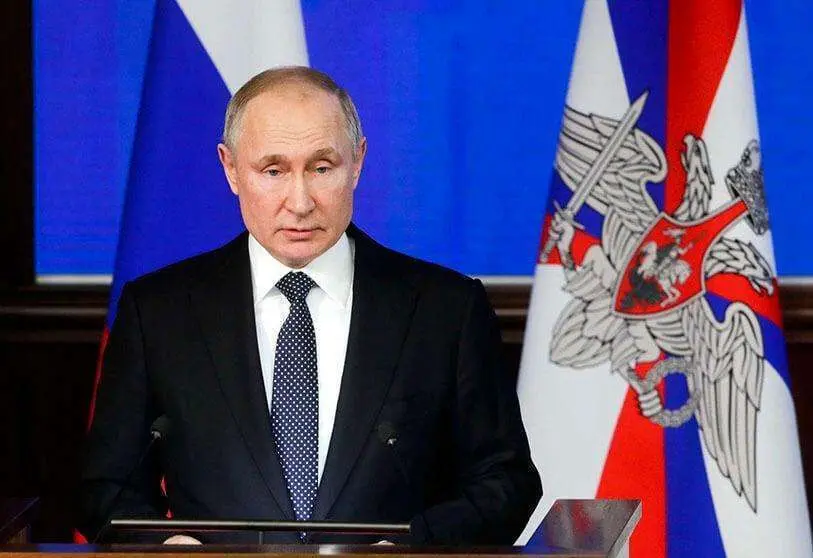What is Russia looking for in Libya?

The United States and other independent sources have indicated that the country presided over by Vladimir Putin has sent planes and personnel with the aim of supporting Libya's 'strong man', Marshal Khalifa Haftar. Russia's goal with these moves is to regain the influence it lost in 2011 in North Africa after the fall of Muammar Gaddafi. Russia, which opposed European intervention in Libya, lost its main ally in the Maghreb since the Cold War almost a decade ago. Four billion dollars in investments and oil contracts were also lost.
Putin is trying to recover historical, political and military ties with the countries in the area, as a counterweight to the influence of Western countries and the new regional leader, Turkey. The commander of the US Army in Africa has this week denounced the deployment of Russian planes on Libyan territory, something which has been denied by Russian deputies and senators, but not by the Kremlin or the Foreign Ministry.
"We have followed the route of the Russian planes. From the Air Force base in Lipetsk, the stopover in Iran, where they refuelled, to the Russian base in Syria (Khmeimin) and then their arrival in Libya", Ruslan Levyev, director of the Conflict Intelligence Team, which investigates the presence of Russian military abroad, told the Efe agency. This analyst assures that satellite images of the Mig-29 or Su-24 aircraft have been located, to which must be added photos of these Russian fighters on the ground in aerodromes for the control of Marshal Haftar.

The United States has assured that these planes have the mission of covering from the air the advance of the Russian mercenaries on the ground. Leviev thinks that Moscow supports Haftar's forces and their plans to take Tripoli, still under the control of Fayez Al Serraj's government. "Putin thinks that he is still living in a bipolar world and his aspiration is to be a counterweight to the West and in some regions even to surpass it," said Leviev.
However, for the moment, the only Russian presence in the North African country, although unofficial, is that of the mercenaries of the now famous Wagner group, which Russian experts consider more "a private army" than a military company. That the Wagners - a group founded by Yevgueni Prigozhin, known in the West as the "chef" of the Kremlin - had tanks and heavy artillery, was a well-known fact, but the current presence of Pantsir anti-aircraft batteries, one of which was captured by forces loyal to Tripoli, demonstrated the true level of the Russian mercenaries' equipment in Africa.
Moreover, in recent months they have multiplied in number. Compared to the alleged half a thousand at the end of last year, there is now talk of some 2 500 Russians in Hafter's service. Russia has done everything possible in recent months to disassociate itself from the Russian mercenaries, and Leviev himself recalls that, according to Turkey, it is now not Moscow but the United Arab Emirates that hired the Wagners to fight in Libya. "This is the first time that Russia has not fought with the money of Russian pensioners," adds Latin.
Unlike Syria, in the Libyan conflict Russia has found itself on the same side as Saudi Arabia, a sworn enemy of Damascus, and other regional powers such as Egypt. "Officially, Russia defends a compromise between both centres of power, Tripoli and Tobruk, the cessation of hostilities and the creation of a government of national unity," explains Boris Dolgov, a well-known Russian Arabist, in declarations to the Efe news agency.Instead, he adds, Haftar has actually travelled to Russia several times in recent months and met with Defence Minister Sergei Shoigou

In recent weeks Foreign Minister Sergey Lavrov has tried to juggle diplomacy, even more so after government forces achieved major successes on the battlefield. "With massive Turkish aid of arms, supplies and Islamist militia from Syria, the government has managed to recover several airfields and reach the Tunisian coast," Dolgov noted. According to Latin, "Putin has already lost the war to Erdogan, who is suffering from the same imperial paranoia as Putin. It seems that the Turkish president's ambitions in Libya go further and are part of a strategy to extend his influence in sub-Saharan Africa through Islamist groups, according to Egyptian writer Mohamed Abul Fadhl in a column in The Arab Weekly.
Russia has economic interests in Libya, a historical relationship with Tripoli and geopolitical objectives, but Dolgov does not believe that Russia "can fight on two fronts". "The Arab world is divided. Turkey supports the Tobruk government and Russia will not allow Islamists to come to power, whether in Damascus or Tripoli. But it is unlikely that Moscow will help its side in Libya as it did with Asad in Syria," he says. He recalls that the Libyan government is recognized by the U.N., so he predicts that Russia will not take great risks or bet on open antagonism with Turkey. "Moscow is trying to save face in the international arena. That if we do not support either side, that if we support a peaceful settlement. When we know that it is not possible to win with peace negotiations and we are secretly supplying soldiers and planes to Tobruk, because we want Haftar to win," Leviev states.








